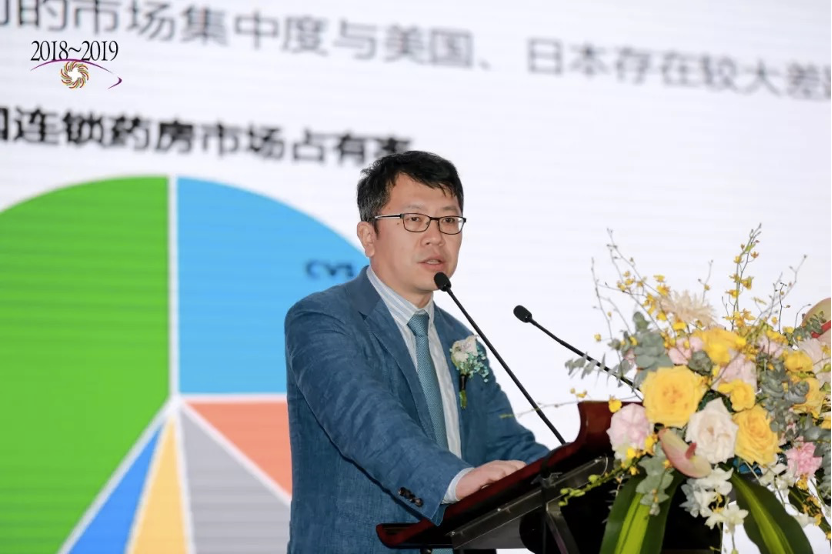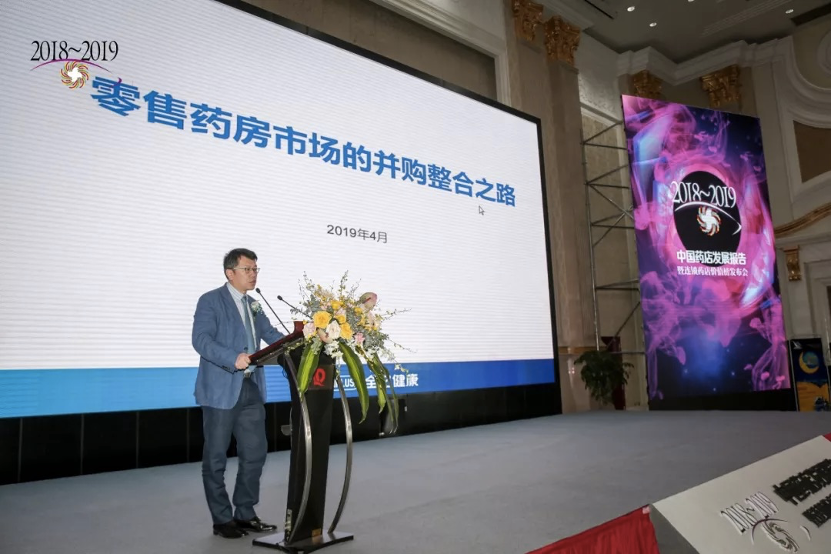2019.05.23 CoStone Capital Views:
As a startup established in 2016, Suzhou PharmPlus Pharmacy Chain Co., Ltd. 苏州全亿健康药房连锁有限公司 (hereinafter referred to as “PharmPlus”) has achieved an “atypical growth” of 6 billion yuan in turnover in just three years.
The Secret to a Startup’s Huge Success in 3 Years


As a startup established in 2016, Suzhou PharmPlus Pharmacy Chain Co., Ltd. 苏州全亿健康药房连锁有限公司 (hereinafter referred to as “PharmPlus”) has achieved an “atypical growth” of 6 billion yuan in turnover in just three years.
PharmPlus knows well the integration of China’s retail pharmacy market. In the opinion of Chairman Lin Ling, any industry will inevitably undergo integration and merger when developing to a certain stage so as to form the profit space and living space conducive to its development. In the industry of retail pharmacy, increased concentration will bring consumers comprehensive and multi-level health consumption demand.
There is a similar development path in developed countries such as the United States and Japan, that is, the obvious trend of concentration in the pharmacy chain industry. The United States implements a relatively thorough separation of health care and medicines. Retail pharmacies are the most important sales terminals of prescription drugs in the United States, which have experienced a development process from diversification to chaining to servicing, with the business model and service model being continuously upgraded and improved. In contrast, the products sold in Japanese drugstores are mainly OTC medicines, daily necessities, and cosmetics, whose business model is similar to that of convenience stores and has obvious scale advantages.
The business model and service model of developed countries/markets determine its scale effect. Therefore, retail pharmacy markets in the United States and Japan demonstrate high concentration. The US prescription drug industry has a scale of about 410 billion US dollars. While the sales of the top 15 retail pharmacies in 2017 were close to 300 billion US dollars, accounting for 70% of market share, the sales of the top 3 occupied 50%. In Japan, the sales of drugstores in 2017 exceeded RMB 400 billion, with the market share of the top 10 drugstores increasing from 45% in 2010 to 72% in 2017. In contrast, China’s current market concentration is far behind those of United States and Japan.
Lin Ling believes that the low market concentration in China brings more opportunities. The total sales of China’s top 10 retail pharmacy companies account for about 17% of market share, meaning that there are huge potentials for improvement. He pointed out that China’s retail pharmacy industry currently had the following characteristics.
Potential: The domestic retail pharmacy chains started around May 2000, with less than 20 years of development. Compared with the development history of advanced countries, we have great space to improve operation, management ability, talent quality and new technology application.
Integration: Compared with the top 10 chain companies in the United States and Japan whose sales accounted for more than 60% of market share, China’s top 10 were only 17% in 2016. After two years of rapid integration, it is estimated that they will not exceed 25%, meaning that there is still great room for integration.
Gemographic dividend: The elderly over 60 years old in China currently account for nearly 18% of the population. It is estimated that the proportion of the elderly will exceed 30% by 2050. With the aging trend is deepening, the demand for medication is also increasing.
Consumption upgrade: With the increase in Chinese people’s income level, consumer demand is gradually upgrading from “having difficulty in getting treatment” to a higher level of health care. The retail pharmacy industry will continue to benefit from the huge demand brought by consumption upgrades in the future.
Policies: Policies such as prescription outflow, new version of GSP, and pharmacy classification are obviously beneficial to the head industry.
PharmPlus has entered the top 10 of the industry in just two to three years through capital integration; in the next 2 to 3 decades, more entities will join the industry through capital investment, which will provide more development choices for this industry. However, this process is relatively long.
As the institution that has built PharmPlus, CoStone Capital has nearly 20 years of investment experience in the consumer and health fields. Its successful investment cases include Conba, Mindray, and Pagoda. Based on a full understanding of the retail pharmacy industry, CoStone Capital has built a “capital + management” PharmPlus model. After the operation was taken over, the turnover and profit margins of PharmPlus have been significantly improved, which proves the success of this model.
For complete Chinese text, please see http://stonevc.com/news_view.aspx?TypeId=5&Id=760&Fid=t2:5:2
Source: The speech of Lin Ling organized by China Drug Store
Rewritten by Yang Yang, Edited by Li Yunzhen, Du Zhixin
The year 2019 marks the fortieth anniversary of China’s Reform &Opening-Up, once again, we meet at the turning point of history. What’s the next step for the game, is there any clear guidance? The answer is affirmative.
Our country is enjoying a good momentum of development, which does not come from the Washington Consensus nor the Beijing Consensus. China’s experience has proved that both the visible hand and the invisible hand are crucial: the visible hand, stands for the government-led reform, and would yield benefits for reform and opening up; the invisible hand, stands for the Marginal Power represented by the private sector, and would improve economic efficiency and tax collection, create jobs and employment opportunities.
Provided that we want to protect and expand the benefits form reform, three simple but mandatory agreements are to be made and followed: No.1 Private ownership must be recognized, protected and treated equally with public ownership constitutionally, both ownerships are scared and inviolable;No.2 Make further clarification of the principal position of market economy, “deepen economic system reform by centering on the decisive role of the market in allocating resources”, as President Xi addressed in the third Plenary Session of the 18th CPC Central Committee;No.3 Implement the guiding principles of “comprehensively promoting law-based governance” of the fourth plenum. The rule of law is essential for economic growth, irreplaceable to protect private ownership, and necessary to encourage innovation and entrepreneurship.
Above are three rules for us to avoid falling into the Middle-income Trap. Assuming that we are breaking systematic barriers to private enterprises’ participation in market economy, and boosting innovation and entrepreneurship of our society, then we are heading towards a promoting direction. We are marching in the path of light, regardless of the ups and downs of Sino-US relationship, the drop in GDP growth rate, or the monetary policy.
These principals also apply on knowing how better to run a business: don’t be hedged by rules and regulations at the beginning, pay more attention to your survival, and you’ll learn more when you start your second business.
For many years, Huawei has been the only Chinese company on the list of the Top 50 R&D Spenders. Regardless of the economy and its income, what Huawei has been doing is investing in its future, dedicated to R&D, continuously and resolutely. This provisional work underscores Huawei’s accomplishments, making Huawei anindustry leader.
So, there are standard answers on how to run a company,which could be summarized as concentration and professional dedication, continuous investment on innovation and trying harder in R&D. Entrepreneurship is also important, every single company needs entrepreneurs to push aside all obstacles and difficulties, to implement strategies and ideas. We, as investors, are destined to look for such outstanding entrepreneurs and their companies, invest in them and partner with them.
At this key point of history, a country, a company, or asingle individual, will all need to find the right path. Four decades after the Reform and Opening-up, it’s time to learn from our experience and stop “wadding across
